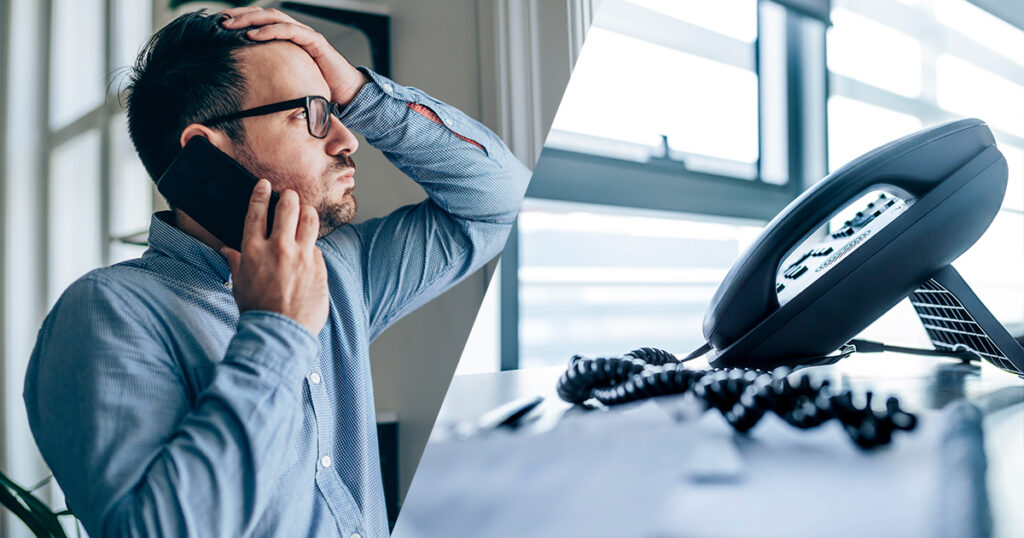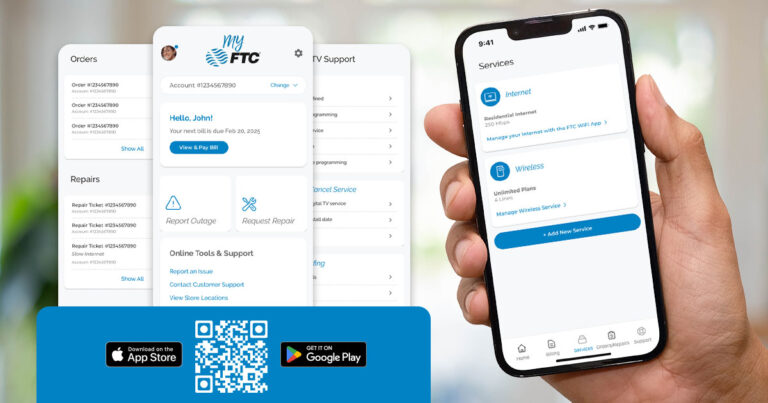According to the publications Consumer Reports, 75 percent of consumers surveyed said they are highly annoyed when they cannot get a live person on the phone at a business. Further, according to research, about 70 percent of customers will stop working with a business whose customer service they perceive as lacking, and around 60 percent will take their business to rival companies.
When customers or even a prospective customers call companies during regular business hours, they generally expect the call will be answered. If the call cannot be answered right away, most consumers expect, at the very least, to be directed to a way to get the help they are seeking. And while this is especially true for businesses consumers depend on for essential services, it applies across the board, no matter what category of products or services the business might offer.
Phone calls are one of the most important forms of communication between businesses and customers and a missed phone call can cost a business significantly. The costs of a missed phone call to a business may include:
- Lost sales: This threat can be especially damaging for businesses whose offerings are of high value, such as real estate agents, builders and contractors, law firms, auto sellers and auto mechanics.
- Lost customers: While this could amount to a relatively minor loss of a one-time sale, it could also cause a much longer-term loss in revenues if it results in losing a customer with a high lifetime value.
- Negative consumer impressions/sentiments: Missed phone calls can make consumers question the professionalism of a company, setting the stage for a customer to harbor undesirable sentiments toward the brand. This could show in negative reviews.
- Reputational impacts: If missed phone calls continue to happen over time, the company can begin to develop a bad reputation, worsened by negative word-of-mouth advertising from irritated consumers.
- Reduced employee motivation: When a company’s employees see that phone calls are regularly missed or abandoned, they internalize the sense that the business is not committed to strong customer service, perpetuating the negative impacts.
How To Reduce Missed Calls at a Business
The best way to reduce missed calls at a business is to make call answering a priority, expand phone service features and forward calls to mobile devices. Even with these processes in place, a call might be missed, so staff should check their voicemail regularly and provide alternate contact numbers in case they cannot be reached at their desk. To avoid missing business calls, consider:
- Prioritizing answering business calls: Make sure to stress to employees the importance of answering incoming calls, both during initial employee orientation and routinely afterward, especially if missed calls become a common issue. Further, if the business does not already have a devoted receptionist, designate someone whose role flexibility allows him or her to answer calls when other employees are busy.
- Ramping up business phone features: Having a robust and reliable business phone system can greatly increase the odds that all incoming calls will be answered, ideally by a person, but otherwise by voicemail or an auto attendant if needed. Features like simultaneous ring (which allows for multiple phones to ring at once when calls come in) and call forwarding can boost the odds that a live person will answer customers’ incoming calls.
- Forwarding calls to mobile devices: No matter where employees may be, it is a safe bet that their mobile phones are not far away. By forwarding incoming calls to designated employees’ mobile devices so that both the office and mobile phones ring when calls come in, a business can increase the chances its customers will get an answer when they call.
- Checking voicemail frequently: When business calls do slip by and go unanswered, a voicemail system can serve as a great backup to ensure that customers are not stuck enduring a nonstop ringtone. For this to be effective, though, it is important to urge employees to check their voicemail regularly and to clean old messages out of the system so that inboxes do not fill up. A voicemail-to-email feature is another great way to ensure that connected employees do not miss their voicemail messages.
- Having employees designate an alternate contact when out of the office: When employees take time off for vacation, their customers and contacts still have business needs that must be met. To ensure someone can answer or return these customers’ calls before the vacationing employee returns, have the employee designate a contact to field calls while he or she is out. It is also helpful for the vacationing employee to record an “out of the office” message on his or her voicemail accounts before leaving.
What Is the Best Business Phone System?
The best business phone systems are Hosted PBX systems that combine the benefits of a traditional PBX system with the added features of an internet connection.
How Do I Return a Missed Call Professionally?
Sometimes staff could still miss a business phone call, even with the best phone system and correct processes in place. When a business call is missed, respond professionally by:
- Responding to the missed call as quickly as possible
- Sounding thankful in tone
- Mentioning the customer’s voicemail was reviewed in its entirety
- Addressing his or her concerns in order
- Expressing interest in solving the problem or helping him or her
- Listening to any additional information
- Sending a follow-up email
Looking to improve your business’s phone system and miss fewer calls? FTC’s Hosted PBX offers an array of powerful, enterprise-class calling features, including Incoming Call Manager, Find Me Follow Me Simultaneous Ring, Premium Auto Attendant, Voicemail to Email, Automatic Call Distribution, and more, all at an attractive monthly rate. Make the switch today to catch more calls and build more business.




